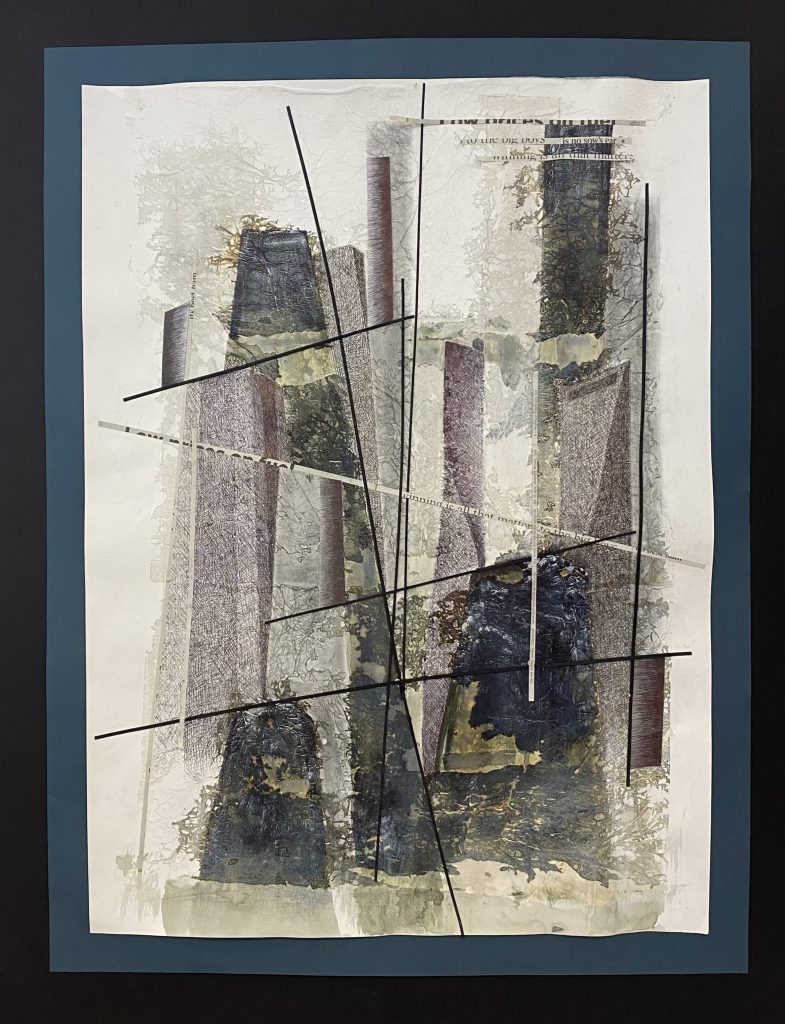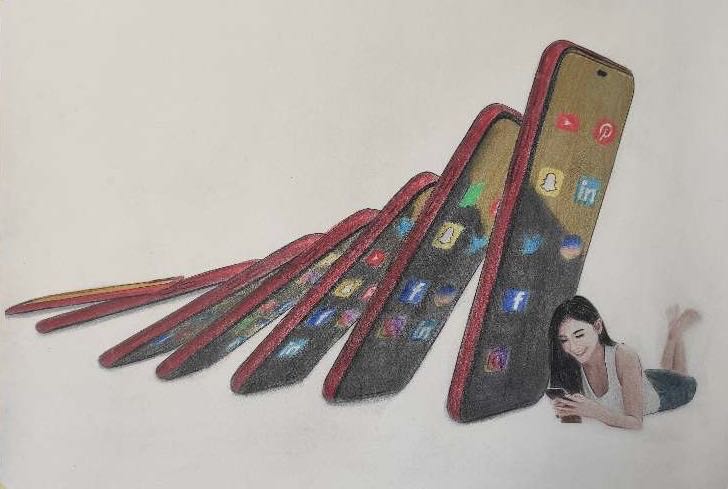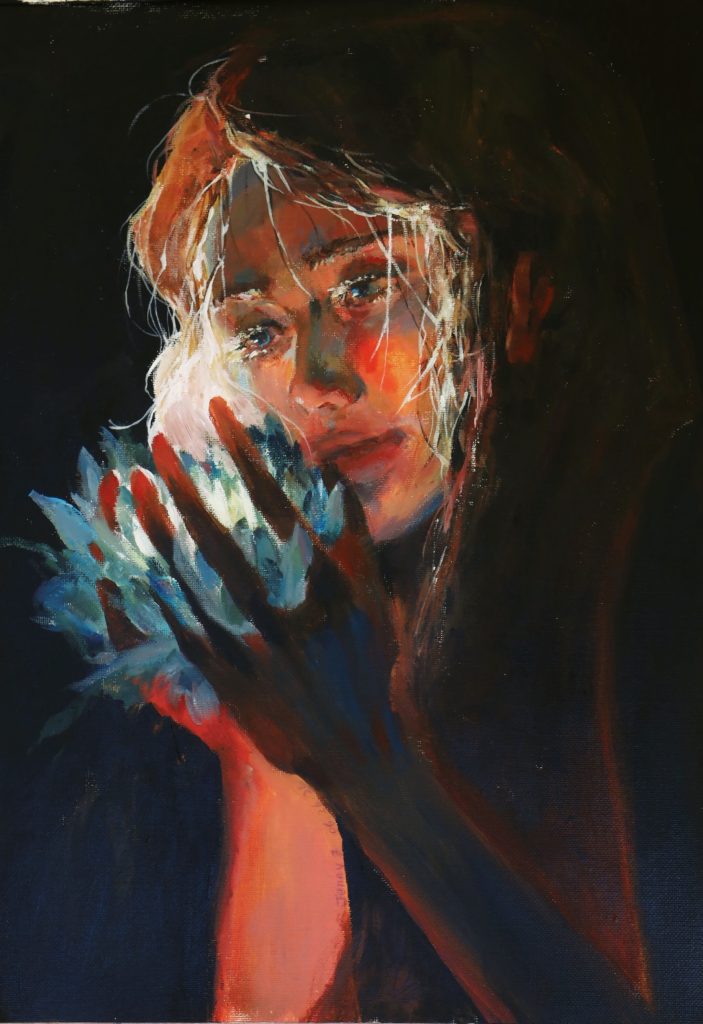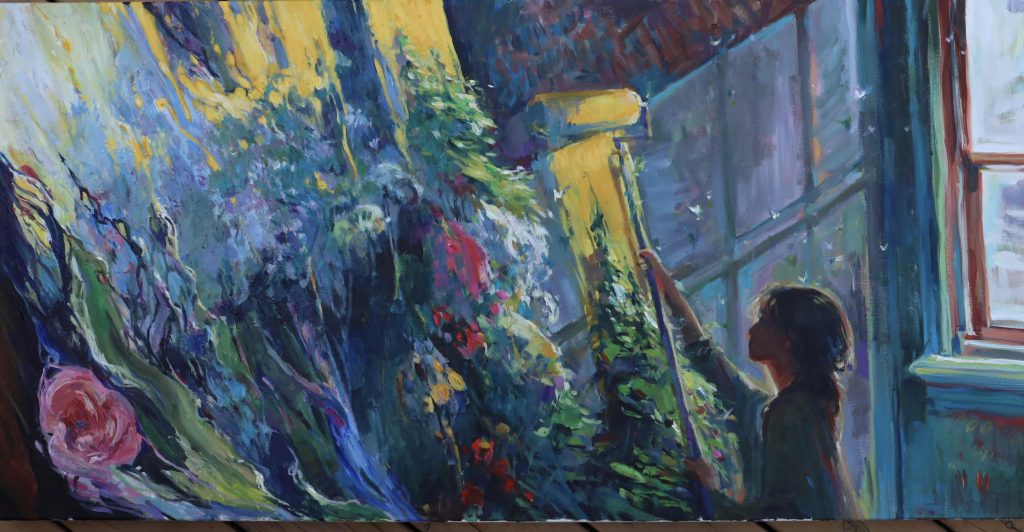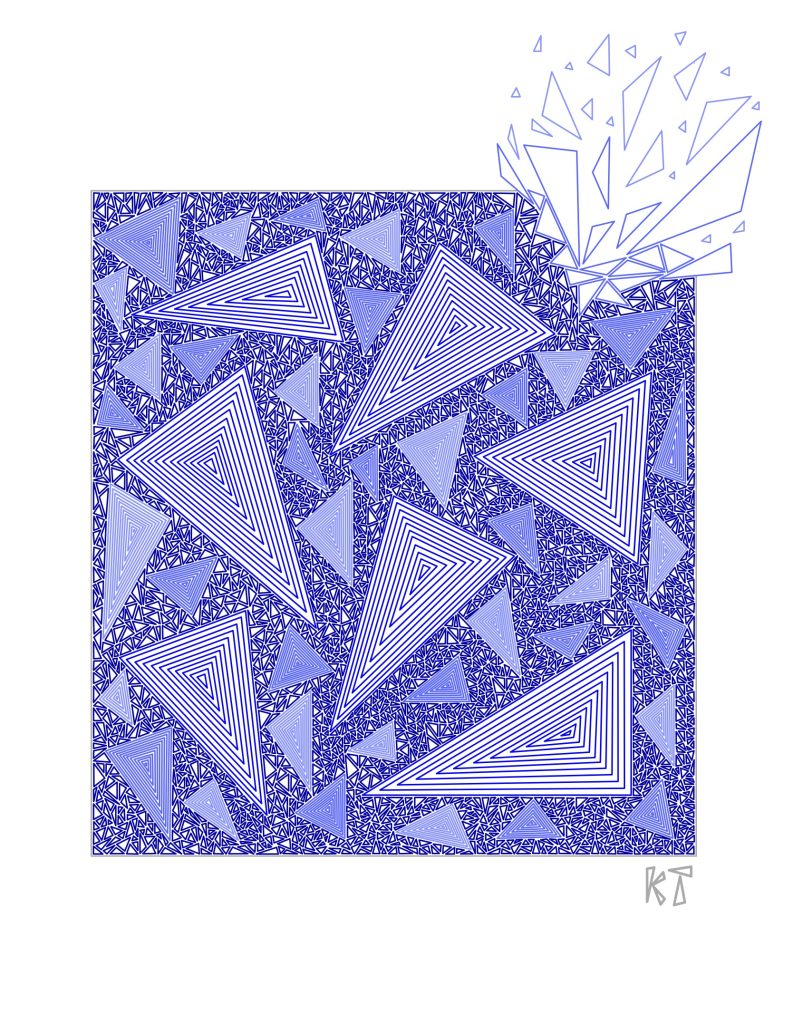
Katie Terrell, an undergraduate junior at Stanford University majoring in Art History, creates art as a form of stress relief. Her art is characterized by a unique style of abstract geometric forms, featuring crisp lines and sharp angles that enable her to communicate intricate feelings and concepts. Each artwork reflects her inner world, giving viewers a glimpse into her thoughts, emotions, and experiences.
